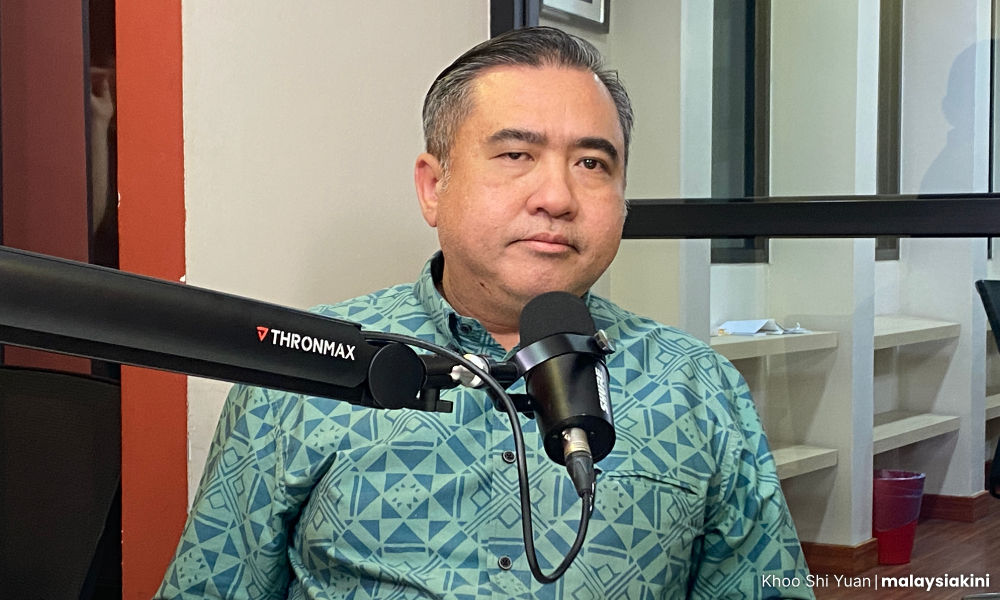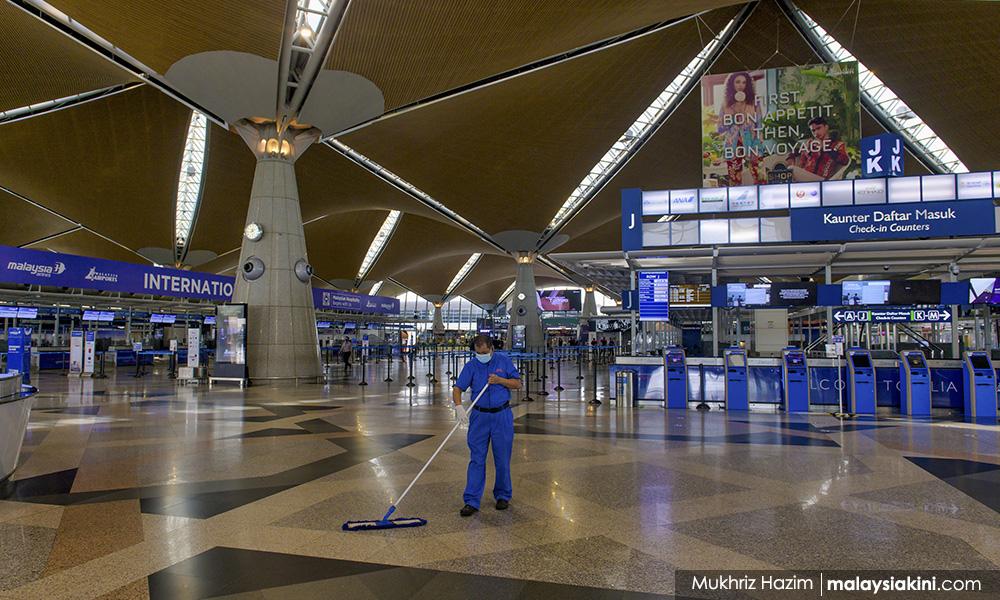Answering two questions about the privatisation of Malaysia Airports Holdings Berhad (MAHB) will help to assess whether the offer price of RM11 per share is fair and reasonable.
Gateway Development Alliance, a consortium led by Khazanah Nasional and the Employees Provident Fund (EPF) is making the offer.
The first question is whether the offer price reflects the true value of MAHB. The second is if one of the shareholders of Gateway, Global Investment Partners (GIP) which is supposed to have expertise in airport management, can add value.
Nothing else really matters, including Blackrock's investment in the consortium through GIP. Blackrock is a global investor with trillions of US dollars invested all over the world.
First, the details. The consortium's other partner besides Khazanah, EPF, and GIP is the Abu Dhabi Investment Authority (Adia). If the offer is successful, Khazanah will increase its ownership in MAHB from 33.2 percent to 40 percent and EPF from 7.9 percent to 30 percent. Adia and GIP will hold the remaining 30 percent.
Collectively, Malaysian investors, through Khazanah and EPF, would own 70 percent of MAHB. The government will retain special share rights in MAHB, and the chairperson and CEO will continue to be Malaysians.
The offer is conditional upon 90 percent control following which the remaining shares will be compulsorily acquired. The current level of control is 85.8 percent after acceptances as of Jan 15.
The original closing date was today (Jan 17), already extended from Jan 8. It is likely if the date was maintained it would not be successful, but it has been extended again by a week to Jan 24.
Conflicting recommendations
The assessment of the offer is complicated by conflicting recommendations. Appointed advisers Hong Leong Investment Bank (HLIB) made the cryptic verdict of “unfair but reasonable”. Tellingly, five independent directors disagreed vehemently and believed the offer of RM11 per share was insufficient.
A newly added complication is that Transport Minister Anthony Loke has decided to wade into troubled waters to provide buoyancy on the side of the offerors. As minister and regulator, he should have stayed out, but he did not.
Loke’s involvement and the repeated extensions are clear indications that those in power want this deal to go through, although why that is so is not known.

EPF should remain a passive investor always and not waste precious resources on active investment management. That is not its role. As a sovereign fund, Khazanah can do this but it has to be able to support its stance.
‘Unfair but reasonable’
HLIB deemed the offer as unfair as it represents a 13-20 percent discount to their estimated fair value of between RM12.60 and RM13.70 per MAHB share but added it was reasonable in the absence of a competing offer - a standard ploy used to signal a poor offer without rejecting it.
Independent directors strongly disagree with HLIB’s recommendation, finding them both unfair and unreasonable and have advised shareholders to reject it. They are Mohamad Husin, Ramanathan Sathiamutty, Cheryl Khor Hui Peng, Koe Peng Kang, and Chris Chia Woon Liat. Good on them.
What is interesting is their view on future prospects. They point out MAHB’s current strong growth and future prospects, with its ongoing and planned initiatives for development.
MAHB has secured management extensions for 39 airports nationwide until 2069 - 45 years. Capital recovery mechanisms that enable significant investments in capacity expansion at key airports and accelerated off-terminal initiatives, such as the KLIA Aeropolis and Subang Airport Regeneration Plan, are already underway.
Strong prospects for MAHB
They pointed to MAHB’s strong post-Covid-19 recovery for passenger throughput, as seen in the rebound of passenger traffic at its airports. One concern that everyone shares is that the delisting of MAHB would reduce its transparency, accountability, and ability to raise capital from public markets.
Given MAHB’s positive financial momentum, clear growth strategy, and the potential for future value accretion if the shares remain publicly traded, the directors found no compelling reasons for shareholders to accept an offer that does not adequately reflect MAHB’s full potential.
The offer is neither fair nor reasonable.
The next question is whether GIP brings great expertise to the table. Let’s look at some airports it manages. London Gatwick is ranked 48th by ranking agency Skytrax, Sydney Airport 55th, and London City Airport 82nd.
KLIA, operated by MAHB, is ranked 67th and was once in the top 10, according to reports. Surely then we must have the expertise to take it back there. Is there a need to privatise at below valuation at this point when it is low? And is a foreign partner even needed?
Part of the problem is that the government differentiates against government-linked companies - MAHB suffered when airlines refused to pay higher rates, and the government stood by and watched.
Instead of getting foreign partners in, the government should allow MAHB to raise rates (and you can be sure rates will rise if the offer is successful) and let it find capital for the necessary expenditure required to upgrade the airports. Get good management in and give them a free hand instead of tying their hands for political reasons.
Neither fair nor reasonable
We now have answers to both questions. No, the offer is neither fair nor reasonable if we take into account future projects and earnings of MAHB, as explained by the five independent directors who rejected the offer - they should know.

And it’s hard to see how value is being added. Better that the current shareholdings remain intact, everyone is given an opportunity to buy equity in MAHB and let the management create value unhindered. It’s been done before.
But if minority shareholders now capitulate and accept the offer, the deal will still go through. One hopes the remaining minority shareholders who have not accepted the offer will stick to their guns to reject this offer in favour of long-term gain.
The last traded price before the offer was RM10.40 a share. The offer is a mere five percent premium. That’s nothing for a takeover of a major airport operator whose prospects are bright and undiminished.
Opportunists are always looking for undervalued assets. Let them use the marketplace to buy them and it will result in better value for all instead of facilitating their greed by giving them the assets on a platter at their price. - Mkini
P GUNASEGARAM says that as a matter of policy privatising listed assets must be actively discouraged - it erodes market depth, efficiency, and transparency, and encourages circumventing fair play by stretching rules to limits.
The views expressed here are those of the author/contributor and do not necessarily represent the views of MMKtT.



No comments:
Post a Comment
Note: Only a member of this blog may post a comment.